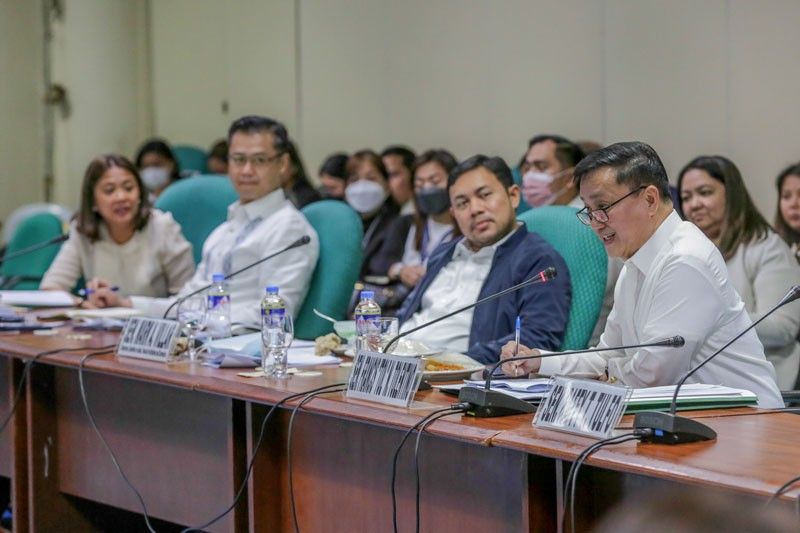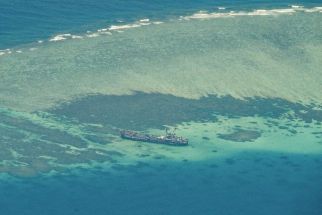Privatization proceeds eyed to fund Maharlika

MANILA, Philippines — Proceeds from privatization may be used to finance the proposed Maharlika Investment Fund (MIF), rather than putting state banks and the central bank at risk, a public advocacy group said.
At a hearing of the Senate committee on banks, financial institutions and currencies yesterday, the Foundation for Economic Freedom (FEF) maintained that it does not object to the creation of a developmental financial institution.
But FEF president Calixto Chikiamco argued that the Bangko Sentral ng Pilipinas and government financial institutions (GFIs) Land Bank of the Philippines and Development Bank of the Philippines should be removed as funding sources.
“There may be other sources of funds from the government that could initially fund it, such as privatization proceeds,” Chikiamco said as he noted that the MIF as drafted was fraught with risks in “an era of economic and geopolitical uncertainty.”
“There are sources that can be tapped to initially fund it and attract investments from the private sector and foreign sources eventually,” he said.
Chikiamco said the government should scrap planned contributions of the BSP, Landbank and DBP to the multibillion-peso MIF as this would put the country’s financial sector at great risk.
“It might even be breaching regulations on a single investment,” he said.
Based on the current form of the bill, the BSP will inject some P100 billion, without touching gross international reserves, as seed capital.
Another P50 billion will come from Landbank and P25 billion from DBP. Privatization proceeds are already part of the original bill.
Chikiamco argued that the funding source of Maharlika is problematic, especially as it is unclear if Landbank and DBP equity cash investment in MIF will be guaranteed by the national government.
Assuming that it is guaranteed, the economist warned this still creates a “giant moral hazard” when parties are protected from the consequences of their decisions, which could also lead to financial crises such as in 1997 and 2008.
“With its ability to access guaranteed loans from the GFIs and perpetual funding from the BSP, the MIF will become ‘too big to fail’ and pose systemic risk to the economy,” Chikiamco said.
He added that guaranteeing MIF debt from GFIs will produce enormous fiscal and other risks and may lead to ratings downgrade and increase the cost of borrowing for the government and, in turn, widen the fiscal deficit.
On the other hand, if the fund is not guaranteed, it also increases systemic risk to the banking system as possible evaluation of the value of the MIF will translate to losses to the DBP and Landbank.
As a result, Chikiamco warned that this can light a fire to the rest of the banking system and result in financial contagion and panic.
“It will become wobbly. The market will perceive that as a contagion,” he said.
Further, FEF argued that the primary objective of the MIF should be clarified, conflicts of interest should not arise and the level playing field should not be tilted in favor of MIF.
The proposed fund also could weaken the BSP’s capitalization as well as its standing to maintain price and financial stability as the central bank may make policy decisions to increase dividends from the MIF that may affect its enforcement of monetary tools.
“As long as you remove the GFIs, we can live with that. I think there is a role for Maharlika in certain instances,” Chikiamco said.
When asked by panel chair Sen. Mark Villar about possible sources of funding for the MIF, Chikiamco cited the privatization of the New Bilibid Prison and the Philippine Amusement and Gaming Corp.
The senator said the country can greatly benefit from the MIF, which was meant to widen the options available to the government to fund infrastructure projects.
“The Philippines may benefit from having its own sovereign wealth fund, especially with respect to boosting our long-term economic productivity. A sovereign wealth fund may also help advance our infrastructure development,” Villar said.
Other senators questioned the lack of business plan should the creation of the MIF be passed into law.
Landbank president and CEO Cecilia Borromeo admitted that the bank has yet to see the business plan which should guide the GFI in its investment move.
Sen. Nancy Binay said a business plan should give lawmakers and investors a bit of comfort when they see where the fund will be invested.
“It’s like when you borrow from a bank, you will be asked where you will use (the money). It’s like you don’t know where you will use it,” Binay said.
In response, national treasurer Rosalia de Leon said there are 87 infrastructure items being deliberated by the National Economic and Development Authority which could be funded by the MIF.
Senate Minority Leader Aquilino Pimentel III, for his part, argued that recent deliberations in the Senate appear to have become a “very expensive public brainstorming” for government agencies, given their lack of preparation on the matter.
While De Leon assured the committee of a list of allowable investments under the MIF, Pimentel said one provision allows “all other investments as may be decided by the Board.”
He said the bill also imposes a two percent cap on administration and operation expenses but Section 17 of the measure allows additional expenses, which effectively cancels the restriction.
“We hear news about the President’s report that the Japanese investors are excited to invest in the Maharlika fund. Where is the mechanism of the current bill? How do they invest? It is not stated there,” he said.
“In its current form, I hope it does not reach [plenary]. It’s very disappointing, especially as an administration measure, since the assumption is that it is backed up by the best lawyers and bill drafters,” Pimentel said. “The quality of the proposal is not well thought out, not well-planned.”
- Latest
- Trending
































